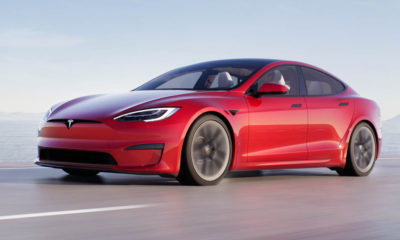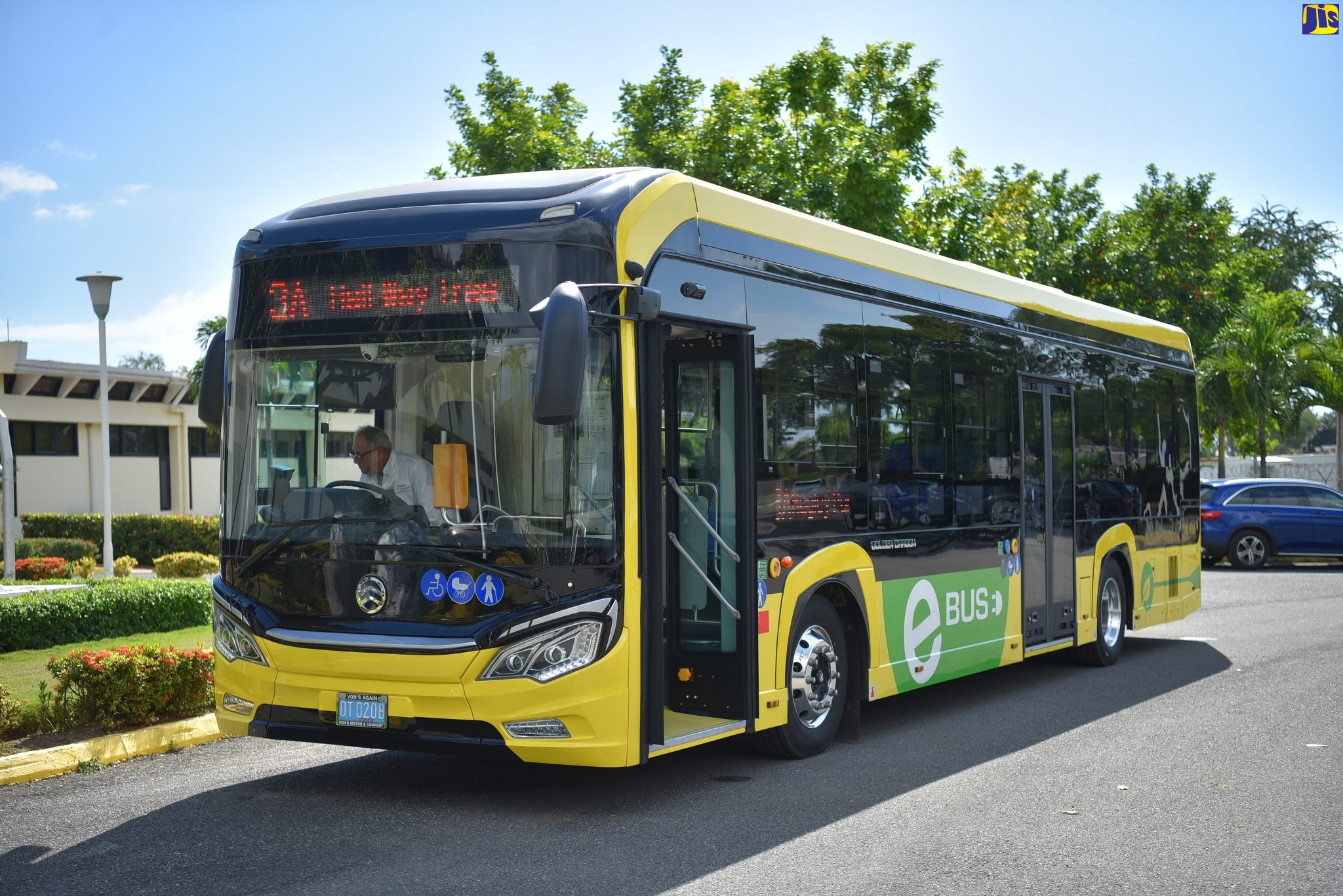In a move that could reshape the global automotive landscape, Japan’s Honda and Nissan are reportedly preparing to start negotiations for a potential merger. If successful, this deal would create an automotive giant capable of rivaling Toyota, long considered the dominant player in Japan’s automotive sector. The proposed merger, which could potentially extend to include Mitsubishi, would consolidate the Japanese auto industry into two main camps: Toyota on one side and Honda-Nissan on the other. This ambitious move signals a shift in the way automakers are rethinking their strategies in an increasingly competitive and rapidly changing market.
The catalyst behind this potential merger is the urgent need for both Honda and Nissan to strengthen their positions in a marketplace undergoing radical transformations. Both companies have seen their global partnerships evolve over the years, with Nissan’s long-standing alliance with Renault and Honda’s diminishing relationship with General Motors no longer offering the same strategic benefits they once did. With the global automotive landscape changing fast, especially due to the rise of electric vehicles (EVs), merging could provide Honda and Nissan the resources they need to compete with their much larger peers.
A Look Back: The Legacy and Performance of Honda and Nissan
Honda
Founded in 1948, Honda has grown into one of the most well-known and respected automotive brands globally. Known for its innovation in engineering, fuel efficiency, and quality manufacturing, Honda has made significant strides in both the consumer and commercial vehicle markets. The company is also renowned for its expertise in motorcycles and power equipment, diversifying its portfolio to reduce reliance on just cars. Historically, Honda has emphasized a reputation for building reliable and affordable vehicles, from the compact Civic to the larger Accord and the CR-V SUV.
However, recent years have been challenging for Honda. The company has faced intense competition from rivals like Toyota, Volkswagen, and emerging EV startups, as well as difficulties in adapting to the fast-evolving technological landscape, particularly in the realm of electric mobility. Honda’s late entry into the EV market has raised concerns among industry analysts, and while the company is making strides with its new EV models like the Honda Prologue, it has still not reached the level of electrification that Toyota and others have achieved.
Nissan
Nissan’s history dates back to 1933, and the company, alongside Honda, has been a cornerstone of Japan’s automotive industry. Nissan’s strength lies in its reputation for producing reliable, innovative cars like the Nissan Altima, Sentra, and the popular Nissan Rogue SUV. Nissan made a huge splash globally with the launch of the Nissan Leaf in 2010, one of the world’s first mass-market electric vehicles. However, despite the early head start, Nissan has struggled to maintain its position as an EV leader, losing market share to competitors like Tesla, Volkswagen, and even Toyota, which has gained significant traction with its hybrid models.
Nissan’s performance has also been impacted by leadership instability, especially after the dramatic arrest of former CEO Carlos Ghosn in 2018, which led to an era of uncertainty and financial struggles. While Nissan has begun to bounce back, its ability to innovate and scale its EV production has been slower than anticipated.
Why a Merger Makes Sense
The merger of Honda and Nissan could provide several key benefits for both brands, enabling them to overcome their respective challenges and better compete with industry giants like Toyota, Volkswagen, and new EV entrants.
1. Economies of Scale
A merger would enable Honda and Nissan to pool their resources, reducing redundancies and improving cost efficiency. By combining their research and development (R&D) operations, they can share technology, manufacturing processes, and supply chains, making it easier to scale production and reduce costs for both traditional and electric vehicles. This is particularly crucial in an era of significant R&D spending, where smaller automakers can struggle to keep up with the technological arms race, particularly in areas like electric vehicle (EV) development, autonomous driving, and connected car technologies.
2. Strengthened EV Capabilities
Both Honda and Nissan have been slow to embrace the electric revolution compared to their competitors, particularly Toyota, which has pioneered hybrid and fuel-cell technologies. A merger would allow the two companies to accelerate their efforts in electric mobility, pooling their technological and production capabilities to develop competitive EV models. This could help them rival Toyota’s market leadership in hybrids and electrification, especially with Nissan’s experience in EVs and Honda’s expertise in powertrains and hybrid technology.
3. Expanding Global Reach
By merging, Honda and Nissan could significantly expand their global presence, especially in markets where Toyota currently dominates. While both companies have a strong footprint in North America and Asia, a combined entity would have the resources to challenge Toyota more effectively across these and other emerging markets. By leveraging Nissan’s stronghold in the U.S. and Honda’s success in China, the merger could result in an expanded global distribution network and a more competitive global strategy.
4. Greater Investment in Innovation and Sustainability
The automotive industry is undergoing a profound transformation toward sustainability. The shift toward EVs, coupled with increasing regulatory pressure for stricter emissions standards, means that automakers must invest heavily in new technologies and greener solutions. By combining their R&D resources, Honda and Nissan could more effectively compete with global peers like Toyota, which is already heavily invested in hybrid and hydrogen technologies. The merger would allow the combined company to innovate more quickly, adopt sustainable practices, and position themselves as leaders in the green automotive revolution.
Competing with Toyota: The Big Challenge
Toyota has long been the undisputed leader in the global automotive market, with a reputation for reliability, innovative hybrid technologies, and a deep commitment to sustainability. Toyota’s Prius has become the poster child for hybrid technology, while its push toward hydrogen fuel cells, particularly with the Toyota Mirai, demonstrates its forward-thinking approach.
For Honda and Nissan to effectively compete with Toyota, they would need to address several key areas:
- Accelerated EV Production: Toyota’s hybrid and hydrogen technology have given it a competitive edge, but Honda and Nissan can close the gap by investing heavily in scalable electric vehicle production. The merger would enable the two companies to streamline EV production and introduce a wider variety of vehicles, from affordable compact EVs to high-performance electric SUVs and trucks.
- Improved Hybrid and Autonomous Technology: Toyota has a strong lead in both hybrid and autonomous driving technologies. To catch up, Honda and Nissan must intensify their efforts in autonomous vehicle development and improve the hybrid powertrains they are currently working on.
- Leveraging Emerging Technologies: Toyota’s early investments in artificial intelligence, robotics, and mobility services have placed it ahead of the curve. By merging, Honda and Nissan could unite their resources to create a new, technologically advanced product line that includes smart, connected cars with cutting-edge features.
Implications for the Evolving EV Market
The proposed merger has significant implications for the rapidly evolving electric vehicle (EV) market. As automakers are under increasing pressure to electrify their fleets, the merger of Honda and Nissan would create a powerful entity capable of competing with both traditional automakers and EV startups like Tesla.
- Consolidation of Resources: The merger would allow Honda and Nissan to pool their resources, accelerating their EV development, building more efficient manufacturing capabilities, and reducing costs. This would give them the competitive edge to produce high-quality EVs at a faster pace and lower cost.
- Innovation in Charging Infrastructure: To effectively compete in the EV space, the merged company could also invest in charging infrastructure, a crucial factor in the widespread adoption of electric vehicles. By partnering with energy companies or building their own infrastructure, they could address one of the key barriers to EV adoption.
- Sustainability Leadership: As the world moves toward stricter environmental regulations, a merger would provide Honda and Nissan the scale needed to invest heavily in sustainable manufacturing, renewable energy, and carbon-neutral technologies, ensuring they stay relevant in the global transition to cleaner energy.
Conclusion
A merger between Honda and Nissan could create a formidable force in the global automotive market, helping the companies better compete with Toyota and emerging EV giants. By pooling their resources and expanding their capabilities in electric vehicles, the two brands could redefine their futures in a rapidly evolving industry. With the right strategy, the combined entity could emerge as a leader in both the traditional automotive space and the rapidly growing EV market, securing their place as industry powerhouses for the next generation.


 Businessuite Women2 weeks ago
Businessuite Women2 weeks ago
 Businessuite News244 weeks ago
Businessuite News244 weeks ago
 Businessuite News24 International4 weeks ago
Businessuite News24 International4 weeks ago
 Businessuite News243 weeks ago
Businessuite News243 weeks ago
 Corporate Feature4 weeks ago
Corporate Feature4 weeks ago
 Businessuite News245 days ago
Businessuite News245 days ago
 Business Insights2 weeks ago
Business Insights2 weeks ago
 Businessuite Markets3 weeks ago
Businessuite Markets3 weeks ago













 On the balance sheet Inventories total $400 million, which includes used and new vehicles, and solar products, while receivables total $97 million and includes deposits on purchases of imports.
On the balance sheet Inventories total $400 million, which includes used and new vehicles, and solar products, while receivables total $97 million and includes deposits on purchases of imports.
 Jetcon also ended that second quarter with revenue decreasing 27 percent, to JA$184M, compared with the same period in 2022 and 28 percent for the half year to JA$363M. This according to management was mostly due to increased rates by the Bank of Jamaica which saw lenders preferring to invest available funds with the Bank of Jamaica rather than lending to those wishing to purchase vehicles.
Jetcon also ended that second quarter with revenue decreasing 27 percent, to JA$184M, compared with the same period in 2022 and 28 percent for the half year to JA$363M. This according to management was mostly due to increased rates by the Bank of Jamaica which saw lenders preferring to invest available funds with the Bank of Jamaica rather than lending to those wishing to purchase vehicles.





